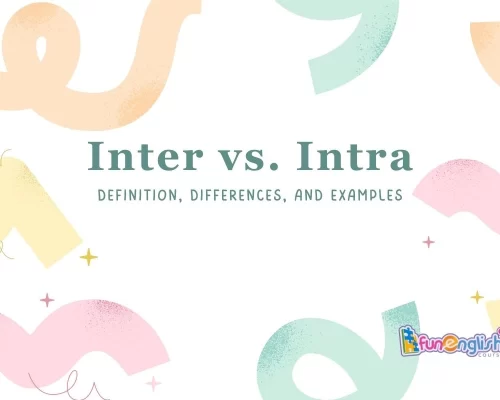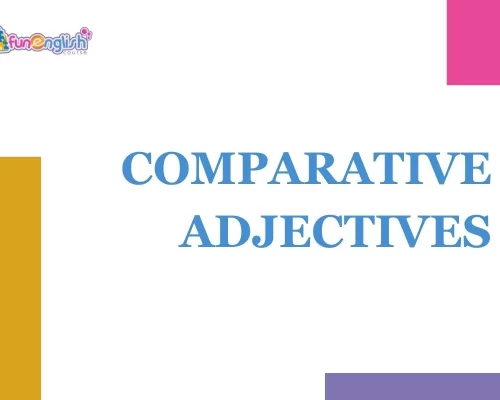Articles and News
Subject Complement: Types and Examples
In grammar, a subject complement is a word or group of words that follows a linking verb and provides essential information about the subject. More than that, it also helps to complete the meaning of the subject.
Subject complements play a vital role in sentence structure by adding depth and context to the subject. Furthermore, they provide valuable information that helps readers understand the subject's characteristics, identity, or state.
In this post, Fun English Course will discuss more subject complement examples so you can gain a deeper understanding.
Understanding Subject
Object Complement: Definition, Types, and Identification
Object complements play a crucial role in enriching sentence structure, enabling writers to convey more nuanced meanings. More than that, they provide descriptive details that enhance the reader's understanding of the direct object and the action performed.
But, what is it really? Fun English Course would explain all the nitty-gritty for you!
The Definition of Object Complement
“Object complement refers to a grammatical element that provides additional information about the direct object in a sentence. Moreover, it serves to complete the meaning of the direct object, adding
The Subject of a Sentence: Characteristics and Identification
The subject of a sentence is a fundamental element that serves as the backbone of language structure. It plays a pivotal role in shaping the meaning and tone of a sentence.
Thus, understanding the subject's importance and its various forms is essential for effective communication. In this post, Fun English Course will explore the concept of the subject, its characteristics, and its significance in sentence construction.
Definition of the Subject and Why It MattersSo, what is subject in grammar?“The subject of a sentence is the main noun or pronoun that performs the action or is
The Difference Between “Dis” and “Un” Prefixes in Language Modification
In the vast world of the English language, prefixes play a crucial role in shaping and altering the meanings of words. Two commonly used prefixes are "dis" and "un." But, what is the difference between “Dis” and “Un”? “The answer is simple. Each prefix carries distinct meanings and functions. Thus, understanding the nuances between these prefixes can significantly enhance one's vocabulary and language comprehension.” In this post, Fun English Course will delve deeper into the differences between "dis" and "un.” So, you can explore how they modify words to create new
What are Affixes? Definition and Examples
Have you ever encountered words like disagree, brotherhood, handsful, and more? These words contain affixes, which are parts added to a base word's beginning, middle, or end.
But what are affixes? How do we use them? Let's explore this article together to learn more about this grammar term.
What is an Affix in Grammar?As mentioned earlier, an affix is part of a word that can be added to the beginning (prefix), middle (infix), or end (suffix) of a root word. Adding these word parts creates new terms with different meanings from the original word.
Affixes, in morphology, are a specific
There, Their, and They’re: The Differences and How to Use Them
Homophones, words with similar sounds but different meanings, can be perplexing. Three common ones that confuse are there, their, and they’re. Fortunately, we offer a comprehensive guide explaining the distinctions between those three, ensuring you never confuse them again!
What is the Difference between There, Their, and They’re?Hole and whole; flower and flour; cite and sight. These homophones sound alike, but the spellings and meanings are distinct. On the other hand, “there,” their,” and “they’re” are also among the most commonly misused.
While pronounced the same,
Inter vs. Intra – Definition, Differences, and Examples
Inter vs. intra – the prefixes can be easily mistaken. However, understanding each term's meaning helps you clarify the distinction between these two.
Inter- refers to multiple things at once, while intra- pertains to within a single group or place. We will explain the difference between intra and inter as well as how to use these two in daily life.
The DefinitionInter- and intra- are both common prefixes used to modify words and enhance their meanings. The prefix intra- signifies "within," referring to something contained within a single entity.
On the other hand, the prefix
Has vs. Have: Understanding the Difference and How to Use Them
The presence of has and have is quite common to express possession in English. However, it is crucial to understand the grammatical rules to use each term appropriately.
While both are variations of the verb "to have," they have distinctive grammatical contexts. Beginners might be a bit unsure about when to use them, however.
This post is here to help you unravel the mystery of has vs. have. Please find out more about them by exploring this article.
The Difference between Has and HaveHas and have are variations of the verb "to have". However, their usage differs depending on the
Expressing Comparisons by Using Comparative Adjectives
Comparative adjectives are crucial in comparing two things and highlighting their contrasting qualities. Using them, we can effectively express how one thing is superior, inferior, or different. Let's find out more about the full range of this adjective in this article!
What is a Comparative Adjective?Comparative adjectives refer to words or adjectives you use to compare two things– people, groups, or things in general. As the name suggests, the term indicates a higher or lower degree of quality compared to another.
These adjectives are formed by adding suffixes like "-er" or using
Superlative Adjectives: Definition, Examples, and How to Use Them
You may want to describe someone's eyes as beautiful but incredibly stunning, surpassing any eye you have seen. Similarly, a love song can be so touching that it beats all other love songs of the past decade.
Among various types of adjectives, the superlative adjective stands out in such situations. By utilizing superlative adjectives, you can refer to a song as the saddest you have ever heard or declare an eye the best in history.
Delve into this article to gain a deeper understanding of the superlative adjective.
What is A Superlative Adjective?A superlative adjective is used in










